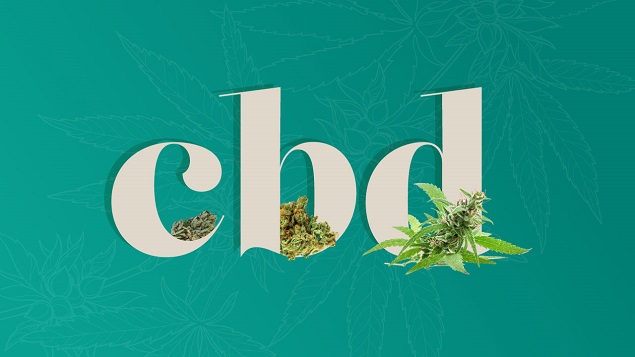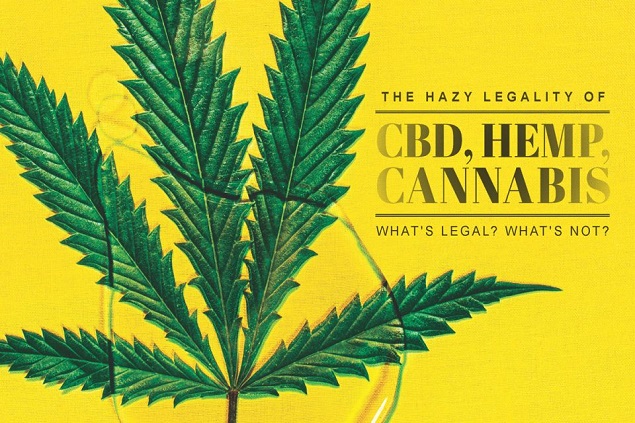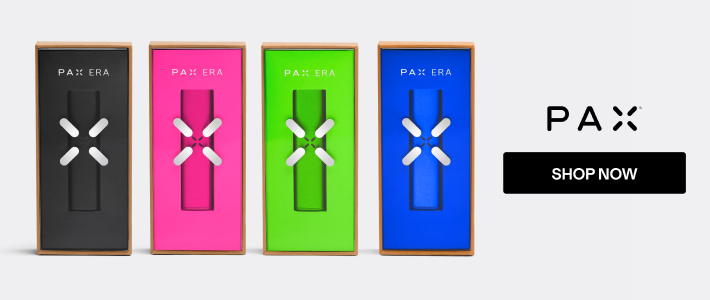It’s hardly ancient history ago when even mentioning the use of a cannabis-derived product in public was frowned upon, and even punishable by the full force of the law. For a culmination of reasons like – unknown effects, unresearched claims or unregulated products, it was basically contraband.
A major factor in the (illegal) legacy of CBD is that, for a long time, it was indistinguishable from Marijuana. Largely that changed after Dr. Raphael Mechoulam discovered the cannabis plant had two separate, primary compounds effective for holistic use – CBD and THC.
Once some decades past and uncountable research papers were published, the perspective on CBD began to change. Success story after success story of the ‘miracle’ plant’s healing properties began to surface, particularly in the post-internet age.
CBD oil became widely popularized in the 2010’s, with a sharp rise in support from the independent media, social media, through to mainstream media titans such as CNN or The Guardian.
The oil has been the most common method of use, outside of smoking the classic cannabis plant. Unless you wanted to smoke Marijuana and get “high”, there wasn’t any other accessible option. Now there are several CBD options outside of oil, but the oil itself still remains the most popular legal option for consumption globally.
What does CBD stand for?

CBD is an abbreviation for Cannabidiol, a unique compound within a cannabis plant and one of the primary reasons for its use over millennia.
The distinctive properties of Cannabidiol (CBD) differ from traditional Marijuana use, which includes THC, but are still highly sought out for a wide range of recreational and reported medicinal purposes.
What's the difference between CBD and THC?
Summary
CBD is not psychoactive, unlike Tetrahydrocannabinol (THC) which gets you “high”.
CBD is not psychoactive. There are maybe 400 hundred or so compounds in a cannabis plant. The primary elements useful to us humans stem from two sets of Cannabinoids; CBD and Tetrahydrocannabinol (THC).
CBD is commonly harvested for pharmacological use, unlike THC, which tends to be grown and sold specifically for its psychoactive properties that get you “high”.

Is CBD classed as a drug?
Under newly established definitions CBD would not be classed as a drug. Cannabis itself though, is still a schedule 1 substance. Meaning it’s illegal.
THC in the form of traditional Marijuana is legally used at the state level in around 40 states for medical purposes. It is however not as accessible for widespread use to assist with ailments like CBD isolate is because THC is illegal under federal law. It is however, and thankfully, not mutually inclusive with CBD use.
Is CBD legal in the U.S.?
Most CBD (with little or no THC) is federally legal and some even FDA approved under certain conditions (such as Hemp).
What's the difference between CBD Oil and Hemp Oil?
Summary
Hemp – Used in a more nutritional sense for overall wellbeing. 0.3% THC or less. Low in cannabinol.
CBD – Used as a medicinal treatment for various ailments, mental and physical. Very low or no THC, but much higher cannabinol content.
THC – Used medicinally in some states but its psychoactive properties primarily make it recreational. Not covered under any federal law and still illegal.
Both CBD and Hemp oils are fundamentally from one source – cannabis. However, what does differ between oils are the other elements of the cannabis molecular structure present.
There is sometimes confusion, because Hemp is traditionally drawn from cannabis seeds as opposed to the leaves or flowers like CBD is. This is a general rule, but there are exceptions in this ever growing market.
There are around 80 cannabinoids in each plant, and within those, there are analogue structures of cannabinol which add up to become – cannabidiol (CBD).
Primarily what separates Hemp from CBD is the concentration of cannabinol, and in some cases any THC present (most CBD has no THC either).
Hemp Oil
Historically, Hemp oil has been used as more of a nutritional supplement. One that can have positive results as a holistic alternative, providing natural (albeit mild) anti-inflammatory effects.
Oil derived from Hemp was made federally legal by President Trump in December 2018. The farm bill legitimized the use of industrial hemp as an agricultural resource.
The new law, which had overwhelming bi-partisan support in Congress, also allowed for Hemp-derived CBD products to be used in lawful marketing.
Any form of cannabis plant prior to this signing had been historically illegal by sanction of the White House. So – this was a huge deal.
What does all this mean for CBD oil? Well, Hemp is classified as a cannabis plant extract with levels of THC at 0.3% or less. So your Hemp oil has basically zero THC in it.
The majority of Hemp oil on the market also has lower CBD content than a pure CBD oil extract. It produces CBD content at around 20% or higher.
While state laws vary, industrial Hemp’s approved use at the federal level makes it pretty much legally accessible across the whole country.
CBD Oil
Cannabidiol oil has more potency due it’s higher cannabinol content. Unlike Hemp, which has a more mild impact, CBD extract is a more direct source of the key cannabinoids in the plant.
A key difference between the two oils is that CBD is more effective for multi-purpose use, whether it be as an alternative medicine or simply for relaxation.
While CBD is not psychoactive like THC is, it does have a profoundly more notable effect than your standard Hemp oil does. So this should be your oil of choice for more ‘general’ use.
CBD extract from flowers and leaves with a high concentrate is not FDA approved. THC is still criminalized at the federal level. Only cannabis oils containing 0.3% THC (or less) can be classified as Hemp.
The agricultural sector being in control of Hemp means business is handled by the United States Department of Agriculture (USDA) instead of the Department of Justice (DOJ) as is with the case with CBD containing THC content.
Around 47 States have most CBD oils legally accessible. If you live in South Dakota, Idaho or Nebraska, sadly most CBD products will not be available to you. But. There’s always Hemp!
How does CBD work?
Summary
CBD oil works by interacting with neurotransmitters in your brain (CB1) and nerve receptors in your body (CB2) called your Endocannabinoid System (ECS).
Your brain has naturally occurring cannabinoid receptors in various neurotransmitters known as CB1. Your body also has cannabinoid receptors on a network of cells and nerves throughout your body known as CB2. Collectively, they are known as your biological Endocannabinoid System (ECS).
The ECS watches over your body’s overall balance, recovery and repair. It’s responsible for many vital everyday functions, such as:
- mood
- sleep
- immune response
- motor control
- emotions
- cognitive thought
- memory
- neuropathic pain
- inflammation response
One way to understand the difference between CBD and THC is that CBD affects you more physiologically than mentally. Of course there is some cross over between the two.
It should also be noted that CBD enhances the strength of THC, and vice versa. Utilizing them in their original format, together, as they had been used historically, could likely still be the most effective way (theoretically speaking, and only if legally able, under medical instruction).
CBD Oil benefits
Summary
Medicinal benefits of CBD are in its anti-inflammatory properties, helping ease symptoms of Anxiety, Depression, MS, Parkinson’s, Epilepsy and Arthritis, while it’s recreational benefits include relaxation and mild stimulation.
By 2020, it has become common knowledge that CBD is a powerful compound containing the ability to combat inflammation. Unlike many other products that just ease symptoms, the cannabis plant’s primary anti-inflammatory agent works in such a way that it directly reduces inflammation at the cellular level.
Symptoms eased by CBD use include:
- Anxiety
- Depression
- Insomnia
- Stress
- Arthritis
- MS
- Epilepsy
- Parkinson’s
And many more, including the symptoms associated with life threatening conditions such as cancer.
There are seemingly countless benefits to CBD consumption. Reported throughout history, from all corners of the earth, to all ends of the research spectrum. Deeply allopathic, skeptical and scientific, to homeopathic, ‘alternative’ and holistic.
CBD’s recreational benefits are also widely enjoyed. For those of you who’d like to avoid getting “high”, or frankly, avoid illicit products if you live in a non-compliant state, CBD has plenty of options.
Users of CBD recreationally can expect feelings of:
- Relaxation
- Sleepiness
- Calm
- Mild Stimulation
A multi-purpose compound with a variety of uses both medicinally and recreationally, CBD is unique.
How to use CBD Oil
Summary
Using CBD oil is a simple process. Purchase a mg dose that suits you, use the dropper to ½ or ⅓ full and squeeze it under your tongue. Hold for about 90 seconds to allow it to pass into your blood stream effectively.
There are a half a dozen or so ways to use CBD, including edibles and e-liquid. The most common way by far (outside of using the plant itself) is to ‘oil drop’, so that’s what we’ll focus on here.
CBD oil comes in various shapes and sizes. From small bottles that are high in strength, to large bottles that are weaker – and vice versa. CBD (in all products including ediblesl) is measured in ‘mg’.
Strengths (mg)
Oil dosing is a personal thing. There’s no ‘one size fits all’ approach. You may find a low mg amount is right for you, or you might need something higher. Strengths can start at 30 mg, but usually start at least 100 mg in bottles, and go to 250, 300, 500, 1000, 2000 and even 5000 mg.
For inexperienced or irregular users, a 250 mg bottle would probably be sufficient. If you enjoy dosing daily, experienced users tend to clock up to at least a 30 mg dose per day. In this case, a 1000mg bottle is commonly chosen, so the amount of oil taken doesn’t need to be too high and your supply lasts.
How to oil-drop
As we’ve explained above, Hemp and CBD aren’t always mutually inclusive. Be sure if you want Hemp or CBD, that you read the label to ensure you buy the product that’s right for you.
The process can seem complicated at first, but is simple upon repetition. Follow these simple steps for oil-dropping CBD:
Step 1:
- Purchase bottle of CBD oil with preferred mg
Step 2:
- Unbox and open the bottle. Unscrew the top and pull out the glass dropper.
Step 3:
- Place the dropper into the oil and squeeze on the rubber bulb (top) until it’s full of oil. Each product will recommend a certain amount, but aim for ½ to ⅔ at first dose.
Step 4:
- Place under your tongue and squeeze out the oil so it sits on the bottom of your mouth. You can also rub it on the gums under your front lip (though it’s messier).
Step 5:
- Try to keep in your mouth for around 90 seconds before swallowing or drinking anything. The longer you leave it in your mouth, the more effect it will have entering your blood-stream via receptive nerves.
You should start feeling the effects after about 20 minutes, although it differs person to person. It may require a bit of trial and error to get the oil type, brand type, and dose right.
There’s no need to give up if it’s not a success on your first try, there are some truly effective oils out there. Be sure to do your research if you’re struggling to find a good match.
CBD Oil side effects
Summary
CBD oil is generally considered safe. Some infrequently reported effects include drowsiness, fatigue, and diarrhea.
In comparison to nearly any of its peers, CBD is considered a safe substance by the World Health Organization (WHO). Even though there are very few reported side effects, there are still some to be aware of.
CBD oil side effects include:
- Drowsiness
- Fatigue
- Diarrhea
Always consult your Physician. CBD use might not be recommended in conjunction with other medications. You should avoid operating machinery, driving and overusing it as to not succumb to any potential side effects.
Can you vape CBD Oil?
CBD vape juice is not the same substance as CBD oil. A common mistake newbie vapers and/or newbie CBD fans can make.
The vape liquid is made from food grade substance (PG, VG with CBD extract) whereas the oil is a combination of oils including commonly used coconut oil.
Therefore, we don’t recommend vaping CBD oil. You can easily purchase a CBD e-juice designed for vaping instead. Our article on CBD Vape Oil goes into this in detail.
Why is CBD so popular?
Summary
Cannabis has been used for over 2,600 years medicinally. CBD is scientifically proven to relieve inflammation and is popular as an alternative medicine due to not being addictive, while having very few side effects.
CBD is popular due to its naturally occurring, unique and powerful anti-inflammatory properties, combined with minimal side effects.
An easy over-the-counter purchase could see your symptoms of anxiety or back pain clear up pretty quickly. A prime alternative choice for people who want to avoid certain addictive pharmaceuticals (such as painkillers).
History
CBD has emerged in popularity after decades of ‘underground’ use. CBD in the form of the Cannabis plant has been used for over 2,600 years (since the 6th-8th century B.C.) while Hemp boasts use as far back as 8000 B.C.
For a whole host of reasons, perhaps due to undefinable benefits, unresearchable materials (lack of scientific advancement & technology) or sometimes harmful psychological effects (due to high amounts of THC) Marijuana has been historically controversial.
Efficacy
Unlike many other ‘alternative’ medicines, the efficacy of CBD has been scientifically proven. To what degree it is effective, can be argued. But to say that it has no positive effect at all, would be bordering on anti-science by the standards of the research available today.
A key to the popularity and success of CBD is also down to its ability to fight inflammation at the deeper biological level – and not just fight symptoms.
Disclaimer: All information and opinions are based on research and data from credible sources. The statements made about the efficacy of CBD as a treatment have not been evaluated by the FDA and therefore are not intended to treat, diagnose, cure or prevent any medical condition. Always consult a physician.

